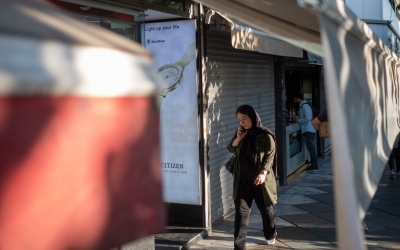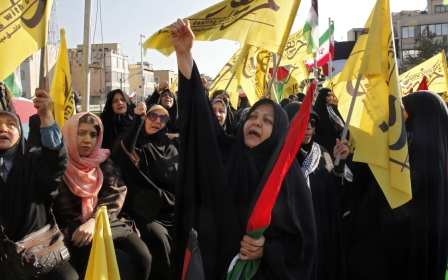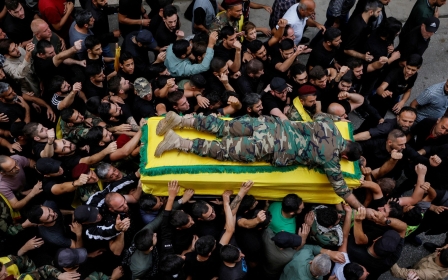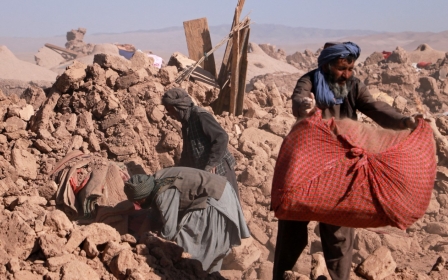Iranian press review: Questions arise over who authorised plain-clothes hijab police
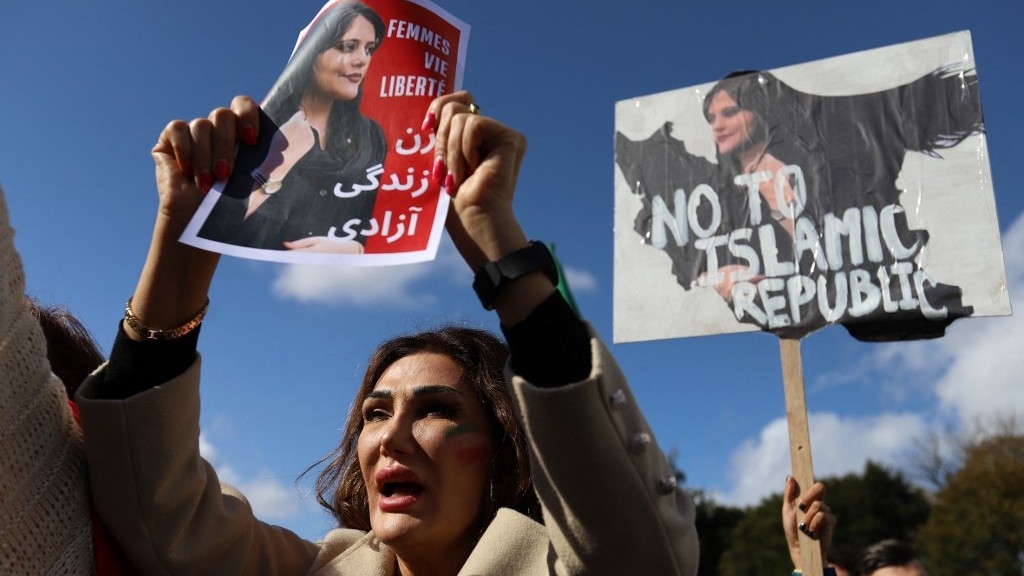
Who authorised plain-clothed hijab police, ask Iranians
A week after videos and photos went viral on Farsi social media depicting a group of plain-clothed principlists enforcing the hijab law in metro stations in Tehran and Mashhad airport, questions have arisen over who authorised them.
Since the events in Iran, reformist politicians have called on authorities to take responsibility for their actions.
However, last week, Tehran mayor Alireza Zakani and Iran's Interior Minister Ahmad Vahidi emphasised that the principlists were not affiliated with their institutions, asserting that all citizens were entitled to “promote Islamic virtue".
Politicians were not convinced by Zakani and Vahidi’s statements. They are both members of the Islamic Revolutionary Guard Corps (IRGC) and supporters of Sharia law implementation in the country.
New MEE newsletter: Jerusalem Dispatch
Sign up to get the latest insights and analysis on Israel-Palestine, alongside Turkey Unpacked and other MEE newsletters
On Saturday, the Aftab-e Yazd daily called the municipality's move a strategy to "play off people against each other", asking why no institution accepted responsibility for deploying Tehran Metro's special Islamic Sharia forces, the Hijab Baan, in public spaces.
"If you believe in what you do, why respond strangely to people's demand for accountability? Your actions suggest a lack of confidence in the correctness and effectiveness of your beliefs," added the daily.
Moein al-Din Saeedi, an outspoken reformist lawmaker from the province of Sistan and Baluchistan, also criticised Tehran Municipality for deploying plain-clothed officers at metro stations.
"Tehran Metro has denied having Hijab Baan, but clarity is needed regarding who is behind this. Is it the municipality or the police? The fact that the organisation in charge of these individuals is unknown suggests a fundamental problem," Saeedi was quoted by local media as saying.
Some of the most prominent cases of civilians being attacked by hijab police are Masha Amini, who was killed by morality police custody in September 2022, and Armita Garawand's death in October, following an attack by the Hijab Baan.
Experts warn of weakening Foreign Ministry
Iranian foreign policy experts have cautioned that new government policies and a draft law passed by the parliament could further undermine the country's foreign ministry's ability to play a role in Iran's international affairs.
The diplomatic specialists raised the alarm when the parliament passed a draft law exempting three institutions from coordinating with the foreign ministry for their international activities.
The three institutions are the Ministry of Intelligence, the Atomic Energy Organisation of Iran, and all armed forces, including the official army, the police, and the Islamic Revolutionary Guard Corps.
According to the new law, these three institutions would be exempted from "actively participating in public and official diplomacy".
However, some are suggesting that the decision was made to weaken the ministry further.
Etemad daily, on Monday, wrote that the new law "would shake the pillars of the foreign ministry... and cause chaos in [Iran's] international relations".
Nasser Nobari, Iran's former ambassador to the Soviet Union, criticised the new law in an opinion column, stating that "the changes in Iran's foreign policy would relegate the foreign ministry to a ceremonial institution".
In a satirical tone, the former diplomat ridiculed the parliament's decision, writing: "I think this list of exempt institutions must be longer. All ministries related to the economy and culture should be exempt. I propose lawmakers also change the ministry's name and call it the ceremony ministry."
Iran's largest saltwater lake drying rapidly
Reports that Iran’s largest saltwater lake is drying up have raised concerns of a looming environmental disaster in Iran.
On Monday, Samat newspaper reported that 80 percent of Lake Urmia's area has dried up in the past year, leaving only 170 square kilometres intact.
Lake Urmia, once the largest saltwater lake in the Middle East, has gradually dried up and transformed into a source of polluting dust over the past two decades due to mismanaged environmental approaches and the excessive expansion of agriculture in the surrounding areas.
On 29 November, the Etemad daily released satellite photos and research results from Sharif University, revealing that 97 percent of the lake has disappeared in the last 25 years.
These reports emerged as government officials promoted their efforts to restore the lake over the past year.
The significance of Lake Urmia extends beyond its environmental value, as it holds considerable political importance. Over the years, numerous environmental activists and experts have faced arrest due to their opposition to projects that ultimately contributed to the lake's demise.
Iranian press review is a digest of news reports not independently verified by Middle East Eye
Middle East Eye delivers independent and unrivalled coverage and analysis of the Middle East, North Africa and beyond. To learn more about republishing this content and the associated fees, please fill out this form. More about MEE can be found here.


